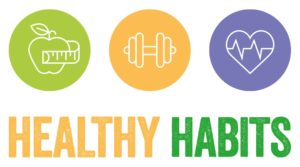Habits of Healthy People
Did you ever notice that some people are just healthy, rarely get sick, and seem to have plenty of energy to live life to the fullest? There are a few of us who just are naturally gifted with great health, but most people earn their good health by developing sound lifestyle habits and practicing them consistently and enthusiastically. Being healthy conjures up images of muscular weightlifters at the gym, or long-distance runners breaking the tape after a marathon. But the habits of good health are a lot easier to get at – fortunately, anyone can learn to do what it takes to be healthy. And it starts with learning how to have a healthy brain.
 Sleep
Sleep
When you sleep, your brain maintains and rejuvenates itself. That means if you don’t get enough sleep, it hurts your brain a little bit each night – can you imagine what happens over months and years of not sleeping enough? Everyone needs sufficient rest – for most people, that means at least seven or eight hours each night, and more for children.
And if you must miss sleep one night, it’s essential that you catch up in the next couple of nights, or else your brain gets a little less efficient, nothing you’d notice right away, but eventually it makes you foggier, slower, and less effective overall. That will lead to disease, but it’s easy to avoid that – get enough sleep.
Diet
Doctors used to think that your brain liked sugar and hated fat. But modern science proves the opposite – your brain hates sugar and loves healthy fats. So, you’re better off avoiding sweet and starchy food, in favor of sources of good fat, like olive oil, fish like salmon and sardines, avocadoes and nuts like walnuts or sunflower seeds.
Your brain needs water, too, and that means water, not iced tea, soda pop, fruit juice or coffee. You need water to hydrate your brain, which is 70% water. Remember, while you sleep, your brain washes itself, and for that it needs enough water. Aim for eight or ten glasses a day.
Exercise
Depending on your current level of fitness, you may choose to exercise moderately or vigorously – just plan to start at your level and move forward reasonably yet steadily.
If you are new to exercise, begin with movement – moving your arms, legs, swaying, rotating, stretching, whatever you can do to get motion into your spine. If you are more fit, you can walk, run, swim, dance, practice yoga, lift weights or play sports.
The key is to select exercises that build your wind and also your muscles. As such, you are better off pacing yourself, doing regular workouts instead of pushing yourself too hard occasionally. Also, contemporary training experts are discovering that high intensity interval training, short intense exercise periods with periods of relaxation in between, is a rapid way to get in shape.
But most importantly, you want to get movement into your spine, because that spinal movement nourishes and stimulates the brain.
Stress Relaxation
Where do you hold your stress? Neck and shoulders? Forehead? Low back? Stomach? Everyone holds stress differently, but no matter where you hold it, it hurts your brain. We all need tools and techniques to de-stress, like meditation or prayer, massage, yoga, martial arts, or bio-feedback.
Brain Care
The latest research is proving that safe, all-natural chiropractic care is one of the best things you can do to keep your brain healthy. Spinal motion feeds your brain, so any deviation from normal spinal health will begin to compromise your brain. So, consult your Doctor of Chiropractic and plan regular checkups for the whole family. Your brain health may depend on it!

